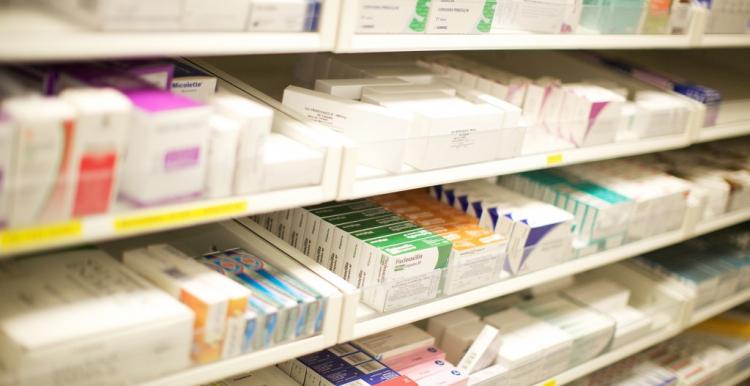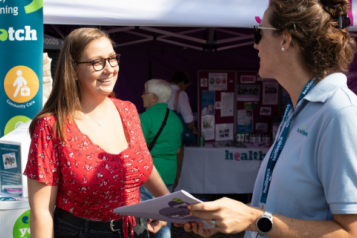10 reasons YOU should be worried about antibiotic resistance

The bugs are smart – they can naturally become resistant to antibiotics over time but we’re making it worse because of overuse and misuse of our medications. This is already a risky situation and it will only get worse if we don’t take urgent action. Here are ten reasons YOU should be worried.
- No antibiotics = 1930s style healthcare If we lose our antibiotics it will be like going back to the 1930s where infections we now regard as trivial could be fatal. An infected cut could be life threatening and an illness like pneumonia would again become a mass killer.
- There may be no new medicines No new class of antibiotics has hit the pharmacy shelves for some time. Even if we discover more medicines simply replacing old antibiotics with new ones is not the only answer as they could also become ineffective. Governments and pharmaceutical companies are considering ways of tackling this situation but for now we may have to rely on the medicines we have, making it essential we ensure they remain useful.
- Green vaginal/penile discharge. Does that worry you? An unusual discharge down below is not the sort of thing that you want to leave untreated, but antibiotic resistant gonorrhoea is a serious, and scary, business. Some have called it the ‘sex superbug’ as gonorrhoea is passed on through unprotected sex or oral sex leading to symptoms including thick green or yellow discharge from the vagina or penis and pain when urinating. If it isn’t treated it can lead to serious complications but we are already running out of antibiotics that can kill the bacteria and fight the infection.
- Antibiotic resistance is already here. When we discuss antibiotic resistance we talk about a frightening future and rightly ask for action to stop the problem from getting worse. But this doesn’t mean it’s all just an issue for future generations. It’s estimated that 25,000 people already die every year in Europe because of infections resistant to antibiotics and in the USA the figure is 23,000 people, every year.
- Cancer chemotherapy and effective antibiotics go hand in hand Chemotherapy is an important weapon in the fight against cancer, but did you know the procedure destroys our white blood cells, which we need to fight off infection? Without antibiotics chemotherapy will become increasingly dangerous.
- Our greatest medical advancements, ruined Organ transplants are a miracle of modern medicine but we need antibiotics to help a transplant patient survive, both because the transplant procedure itself may lead to infection but also because patients receive drugs that intentionally suppress their immune system to ensure their body doesn’t reject their new organ. This suppression of the immune system makes a patient more prone to bacterial infections. If we lose our antibiotics, transplants would become more risky or even impossible.
- It is your problem Sometimes talk of antibiotic resistance being a “global problem” and “threat to healthcare as we know it” may make it easy to switch off. Maybe it’s all too big? Maybe something for scientists or politicians to worry about? Think again, as this problem affects us all directly. For instance, if you are given antibiotics when you don’t need them you run the risk of carrying antibiotic resistant bacteria in your gut. If these bacteria go on to cause an infection, antibiotics may not work when you really need them.
- Sometimes we need antibiotics really urgently Heard of sepsis? It’s a common and potentially life-threatening condition triggered by an infection. Each year in the UK more than 100,000 people are admitted to hospital with sepsis and around 37,000 people will die. The best way to deal with sepsis is to treat it quickly with antibiotics. We probably don’t need to tell you what would happen if we run out of antibiotics to treat this infection.
- We have to save our surgery None of us want to think about getting ill or having a serious operation but we all understand that surgery can save lives. But complex surgery brings with it the risk of infection. Take heart bypass operations or joint replacements for instance – if we don’t have antibiotics these procedures designed to help people and ease suffering could actually lead to many more deaths caused by bacterial infections.
- It costs us a packet The human cost of antibiotic resistance is considerable but the problem also hits us in the pocket. As far back as 2009 the European Centre for Disease Prevention and Control said that antibiotic resistance was already costing the EU about €1.5 billion a year in healthcare expenses and lost productivity. This figure, although high, is believed to be a significant underestimate. If we don’t act this is going to get more and more costly, not only cutting into our precious healthcare budgets but individuals and families productivity too
What can we do about it?
This problem affects us all and we can all do something to help. Firstly, you can take a simple personal action by visiting our Antibiotic Guardian website and choosing one pledge that you will carry out to help save these vital medicines. There are pledges for the public, healthcare professionals and leaders.
There are plenty more things you can do too. Watch the Public Health England video and learn more and talk to your family and friends about antibiotic resistance, and the fact that we don’t always need antibiotics when we’re ill. The Treat Yourself Better website will help you make good choices.
If you’re a health professional, alongside making your Antibiotic Guardian pledge, Public Health England urge you to read this blog and share their antimicrobial resistance information and resources.


